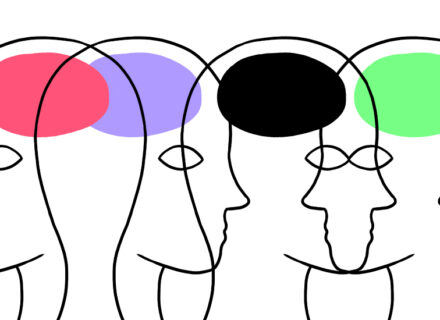
The trend of misdiagnosing Black people’s mental health issues has been frequently embraced since the beginning of colonial enslavement. Fabricated Black mental inferiority was used as an argument to validate systemic white supremacy and is still used today. Pro-slavery Americans argued that Black people needed to be enslaved to stay sane. False statistics claimed that free Black people in the North were much more likely to have mental health issues than those still enslaved in the South.
Since information about the mental health of Black people was used as political propaganda, not unbiased data collection, (or as unbiased as scientific research done by white scientists can be), it is difficult for modern researchers to determine what the actual mental health deficits Black people lived with from enslavement to today. Thus, it is even more difficult to track down a mental health diagnosis like Autism, which is a relatively new classification.

Search Terms and Tags:
- BIPOC
- Black
- Drapetomania
- Dysaethesia Aethiopica
- Mental Health
- Mental Illness
- Negritude
- Negro
- Prisons
- Racial Disparities
- Racism
- Scientific Racism
- Slavery
- Human Rights
- Antebellum South
- Samuel Cartwright
- Racial Segregation
- Psychiatry
- Maniac
- African Americans
- Etiological
- Enslaved People
- Lunatic
- Feeble-minded
- Miscegenation
- Asylum
- Disability
- Freedmen
- Plantation
- Epigenetics
- Historical Trauma
- The Moynihan Report
- Red Summer
- Epigenetics
- American Chattel Slavery
- Share Cropping
- Synaptic Pruning
- White Supremacy

Sources
Newspaper Archives
Humanities, National Endowment for the. Waterbury Evening Democrat. [Volume] (Waterbury [Connecticut]) 1903-1917, August 18, 1908, Image 1. no. 1908/08/18, 18 Aug. 1908. chroniclingamerica.loc.gov, https://chroniclingamerica.loc.gov/lccn/sn93053726/1908-08-18/ed-1/seq-1/.
Humanities, National Endowment for the. Virginia Gazette. [Volume] (Williamsburg, Va.) 1893-192?, November 18, 1909, Image 2. no. 1909/11/18, 18 Nov. 1909. chroniclingamerica.loc.gov, https://chroniclingamerica.loc.gov/lccn/sn86071985/1909-11-18/ed-1/seq-2/.
Humanities, National Endowment for the. The Weekly Mountain Democrat. [Volume] (Placerville, El Dorado County, Calif.) 1861-1862, July 26, 1862, Image 1. no. 1862/07/26, 26 July 1862. chroniclingamerica.loc.gov, https://chroniclingamerica.loc.gov/lccn/sn82014489/1862-07-26/ed-1/seq-1/.
Humanities, National Endowment for the. The Grand Haven News. [Volume] (Grand Haven, Mich.) 1858-18??, May 11, 1859, Image 2. no. 1859/05/11, 11 May 1859. chroniclingamerica.loc.gov, https://chroniclingamerica.loc.gov/lccn/sn85033622/1859-05-11/ed-1/seq-2/.
Humanities, National Endowment for the. The Charlotte Democrat. [Volume] (Charlotte, N.C.) 1870-1881, March 22, 1875, Image 3. no. 1875/03/22, 22 Mar. 1875. chroniclingamerica.loc.gov, https://chroniclingamerica.loc.gov/lccn/sn84020713/1875-03-22/ed-1/seq-3/.
Humanities, National Endowment for the. Litchfield Enquirer. [Volume] (Litchfield, Conn.) 1829-Current, January 23, 1845, Image 2. no. 1845/01/23, 23 Jan. 1845. chroniclingamerica.loc.gov, https://chroniclingamerica.loc.gov/lccn/sn84020071/1845-01-23/ed-1/seq-2/.
Humanities, National Endowment for the. Cayton’s Weekly. (Seattle, Wash.) 1916-1921, December 14, 1918, Image 2. no. 1918/12/14, 14 Dec. 1918. chroniclingamerica.loc.gov, https://chroniclingamerica.loc.gov/lccn/sn87093353/1918-12-14/ed-1/seq-2/.
Articles:
Perzichilli, Tahmi. “The Historical Roots of Racial Disparities in the Mental Health System.” Counseling Today, 7 May 2020, https://ct.counseling.org/2020/05/the-historical-roots-of-racial-disparities-in-the-mental-health-system/.
Kenny, Stephen. “Slavery, Health, and Medicine.” Obo, https://www.oxfordbibliographies.com/view/document/obo-9780199730414/obo-9780199730414-0256.xml. Accessed 21 June 2021.
Willoughby, Christopher D. E. “Running Away from Drapetomania: Samuel A. Cartwright, Medicine, and Race in the Antebellum South.” Journal of Southern History, vol. 84, no. 3, The Southern Historical Association, 2018, pp. 579–614. Project MUSE, doi:10.1353/soh.2018.0164.
Raz, Mical. “Psychiatry under the Shadow of White Supremacy.” Nature, vol. 580, no. 7804, Apr. 2020, pp. 449–50. www.nature.com, doi:10.1038/d41586-020-01126-w.
Umeh, Uchenna. Mental Illness in Black Community, 1700-2019: A Short History •. 12 Mar. 2019, https://www.blackpast.org/african-american-history/mental-illness-in-black-community-1700-2019-a-short-history/.
“Mental Health Can Be Fundamental to Survival after Slavery.” Anti-Slavery International, 10 Oct. 2019, https://www.antislavery.org/mental-health-can-be-fundamental-to-survival-after-slavery/.
Postell, William Dosite. “Mental Health among the Slave Population on Southern Plantations.” American Journal of Psychiatry, vol. 110, no. 1, American Psychiatric Publishing, July 1953, pp. 52–54. ajp.psychiatryonline.org (Atypon), doi:10.1176/ajp.110.1.52.
General (US), Office of the Surgeon, et al. “Chapter 3 Mental Health Care for African Americans.” Mental Health: Culture, Race, and Ethnicity: A Supplement to Mental Health: A Report of the Surgeon General, Substance Abuse and Mental Health Services Administration (US), 2001. www.ncbi.nlm.nih.gov, https://www.ncbi.nlm.nih.gov/books/NBK44251/.
Randall, Vernellia. An Early History – African American Mental Health. https://academic.udayton.edu/health/01status/mental01.htm. Accessed 21 June 2021.
Africans in America/Part 4/”Diseases and Peculiarities”. https://www.pbs.org/wgbh/aia/part4/4h3106t.html. Accessed 10 June 2021.
Interactive Timeline
Click the arrow on the right to walk through the evolution of racist mental health rhetoric used to subjugate Black people

